Feel-Good Moments: Jews Upset on Behalf of Gays

If you’d like to feel good about the world, check out the comments section-yes, never before have those phrases been linked!-on Jersey paper The Jewish Standard’s announcement that they’ll no longer carry gay wedding announcements because it upset some Orthodox folks. That is a lot of seriously pissed off Jews! (via)
A Really Fine Pair Of Shades Means Everything To Cee-Lo's New Album Cover
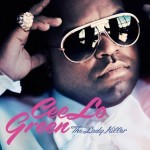
Cee-Lo has a supercool cover picked out for his Lady Killer album, which is due next month. It’s classic-looking. And very familiar. The sunglasses, the relaxed pose, the close-up headshot.
Of course, sunglasses go with music stardom like cocaine goes with more cocaine. There are lots of famous songs about the subject. Some of them are great. Thusly, there have been many album covers similar to Cee-Lo’s.
I’m guessing people will first compare it to the image from Rick Ross’s recent Teflon Don album.
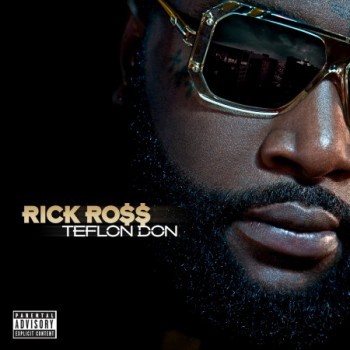
But I think the reference is most directly to Bobby Womack.
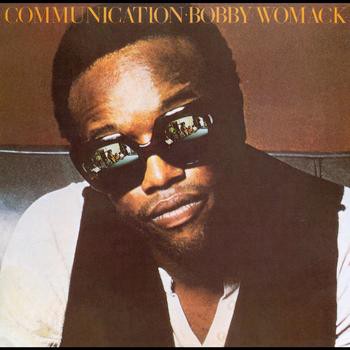
But it’s also like Stevie Wonder.
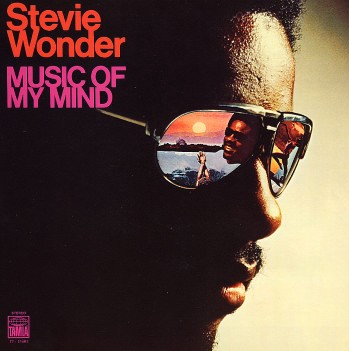
And Lou Reed, too.
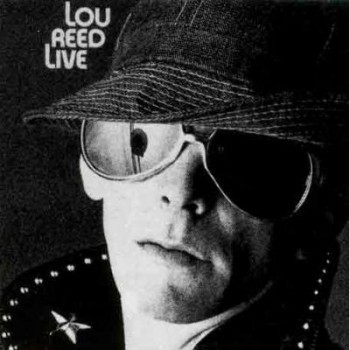
And, as unfortunate as this is to remember, Lenny Kravtiz.
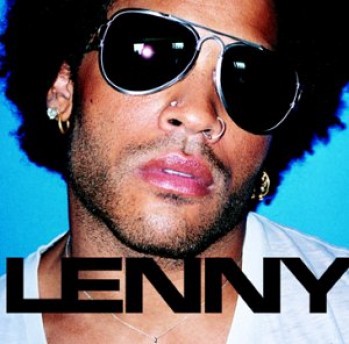
And Syl Johnson.
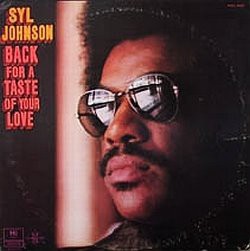
And O.V. Wright.
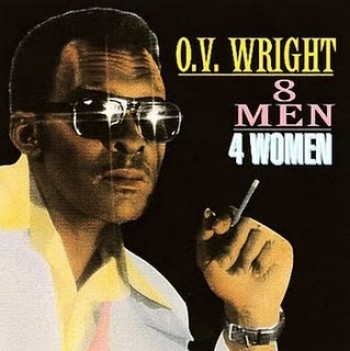
And in some ways most of all, though it isn’t an album cover, Ethan Russell’s famous picture of Keith Richards.
Here’s Cee-Lo again, full-size:
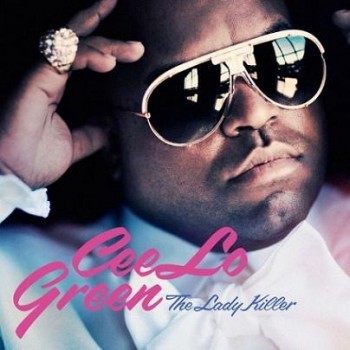
Poking Back, Part 2: Cheering Zuckerberg In Seattle; Like Watching 'Terminator' in a Room Full of...
Poking Back, Part 2: Cheering Zuckerberg In Seattle; Like Watching ‘Terminator’ in a Room Full of Robots
by Mike Barthel

As a Seattle resident who doesn’t work in the tech sector, it can be easy to forget that you’re constantly surrounded by computer nerds. Then you go see The Social Network in a theater downtown, and midway through, someone cheers. For Mark Zuckerberg. For the guy the movie was making every effort to portray as a gigantic dildo. And not just once: mutiple people cheered, multiple times! They cheered when Zuckerberg told off a lawyer. They cheered when Zuckerberg told off an ad exec. They cheered when Zuckerberg capitalized his monetization or whatever the fuck happened. Few things are worse than realizing you’re in a room full of people you hate, and that’s one reason I walked out of the film.
But there are other. For instance: I realized I was paying eleven dollars to watch a deposition, and I also realized that the dramatic climax of the movie centered on stock options. (Very valuable stock options, but still!) But mostly I walked out because I realized that I wanted it to be about class. Because it almost was, right?
Zuckerberg gets to Harvard and is driven to create Facebook as a way of breaking into the northeastern elite that dominates the university’s social scene, but when he discovers that success doesn’t give you that kind of status, he decides to screw the elite over instead. The movie seemed to want to depict the difficulty ambitious non-elites (whether by dint of class, race, ethnicity, or otherwise) can face in resolving the values of independence, individuality, and achievement that motivate them with the realities of the (still largely hereditary) American ladder of class and power they aspire to ascend. We’re culturally trained to want to do it on our own. But wouldn’t it be nice to take a shortcut? Wouldn’t we grab that shortcut if offered it? And if we come into that system from the outside — if we force our way into it-do we really want to belong to a club that would rather not have us as a member?
There’s no reason The Social Network couldn’t have told this sort of story. But it really didn’t tell any kind of story at all. If the filmmakers had made a Gossip Girl-ish movie about social life at Harvard (which The Social Network very much is, at first), that would be great. Or if they had made a movie about the Internet’s effect on modern courtship rituals, which is where the movie ends up, that’s also great. And if they wanted to make a movie about how online entrepreneurs changed the culture of American capitalism, that’s fine, too, I suppose. Even better, if they wanted to tell the story they seemed interested in at first, about class and status and ambition in the early part of the decade, that would be superb, because that’s a story that needs to be told. Instead, though, Fincher and Sorkin wanted to tell a story about Mark Zuckerberg, and that’s a problem. He may be a fine guy in reality, but in the film he’s almost entirely lacking in affect or inner emotional life, which does not exactly make him a compelling fictional character. The filmmakers compensate for this by filling the background with lots of unrealistically half-naked girls whenever possible, but no matter how much you show ugly dudes gawking at female flesh while music pounds, like it’s the midway point in a Behind the Music episode or something, it’s not going to make an Internet company seem cool.
Unless, of course, you’re the kind of person that already thinks an Internet company is cool, in which case you probably saw the movie a lot differently than did the general population. And I don’t think that divide is a generational one, as has been argued. For one, if certain members of the audience are getting the message of generational warfare, the film isn’t really sending it; aside from being, if anything, an idealized version of how young people behave (those parties!), there just aren’t any Olds in it besides Larry Summers (as the voice of reason, which, !!!) and the lawyers, all there more to keep order than to hold anyone back or serve as counter-examples. For another, that would fall into the stereotype trap Matthew Wollin pointed out, which would paint all Olds as technophobes and Youngs as being defined solely by their online media use, neither of which is particularly true. The generational divide is a nice angle to sell more tickets, but it seems far-fetched to me. Though who knows! At any rate, I agree most with Nick Denton’s assessment: that the movie’s really about one person’s struggle to make it and the price he has to pay to achieve his dream, which have existed for a long time. It’s basically a sports movie for tech nerds. The difference is less generational than dispositional.
So what does this say about those tech nerds? Reports from less tech-centric cities are that the audience generally laughed at Zuckerberg, but during the screening I attended here in Seattle, the laughs came mostly at the expense of other characters. (And never at the Jewish jokes, but that’s another subject entirely; remind me to tell you about watching A Serious Man in Portland sometime.) For Zuck, they had mainly cheers. Which is why I had to walk out. It felt like watching Terminator in a room full of robots: you could understand why they were rooting for the wrong side, but it still made it hard to enjoy the movie on its own terms. Sorkin says that Zuckerberg “spends the first hour and 55 minutes being the antihero, the final 5 minutes of the movie being a tragic hero,” but the cheers preceded that. They were cheering the antihero.
Why would they do that? Well, for the same reason that Trainspotting kinda makes you want to do drugs: as adamant as a movie tries to be about a particular activity’s negative effects, the fact that it’s the focus of a well-made Hollywood film can’t help but glamorize it. It’s like entrepreneur porn. Still, the fact that a room at least half-full of IT professionals seemed to take this negative portrayal as triumphant is certainly worrisome. Movie-Zuck is a kind of moral void, an apolitical objectivist-libertarian type who’s incapable of human connection. What could be seen as selfless devotion to his vision is really just more selfishness: Facebook is nice, but it hardly seems worth ruining people’s lives over. Zuckerberg isn’t pursuing it because he knows the end product will be worth fighting for; he’s pursuing it because he wants to be able to do whatever he wants without anyone telling him he can’t. It’s like Lady Gaga says: follow your dreams! But what if your dreams are stupid? If the point isn’t the product but the process, then you’re only making yourself feel better, not trying to serve the common good. Which is fine, of course, but be honest about it.
But the most worrisome thing, I think, is how easily both Zuckerberg’s story and Facebook itself allow class to be swept under the rug. At the beginning of the movie, class is front and center as Zuckerberg tells his BU girlfriend that if he gets into a social club, “I’ll be taking you to the parties and you’ll be meeting people that you wouldn’t normally get to meet.” They are already different; he is higher-up than her, and he knows it. But by the ending (which I was told about later — it sounds sad, though hardly worth staying for), they’re ostensible equals as he tries to friend her on the website he himself created. As the movie frames it, she holds the power here, and Facebook has enabled them to transcend their class markers. But not really, of course. He still has billions of dollars and she doesn’t. Moreover, she’s really just like the billion dollars: not something he cares about (as is said many times throughout the movie) but something he wants to acquire as an outward symbol of his rightness. Women are in this film, but they certainly aren’t people in this film.
The way Zuckerberg attains his power also lets him elude class. Instead of joining the power structure by learning and performing their rituals, he does an end-run around it and gets rich his way, and he seems enormously pleased with this. But like many entrepreneur-types, it seems like he thinks this makes him something other than rich, something other than an “elite” in the modern sense, with its connotation of unearned privilege. But the intentional fallacy applies to wealth as much as to literature. The audience cheered when Zuck nails the lawyer because poor Mark had been put-upon before, and so now is entitled to take it out on those leeches who seek to profit off of his hard work; the audience feels bad at the end because he, too, can cry. But if he’s entitled, then that’s still entitlement. As his girlfriend says, the problem isn’t that he’s a nerd, it’s that he’s an asshole. Mark is a guy who’s only ever taken the shortcut, who resents the fact that he needs to follow the rules. We’ve built up an interesting consensus as a society that doing whatever you want, expressing your authentic self, is the highest good to which one can aspire, and it’s not surprising that actual-Zuckerberg’s Facebook profile lists, among his interests, “revolutions.” Good luck with that!
If there’s a message here, I think it’s that there a venture capitalist is still a capitalist, and there’s really no such thing as a cool businessman. If Mark Zuckerberg is your god, then he’s at least a questionable one, and the same thing goes for Steve Jobs or Page and Brin or whoever else you want to throw onto the altar. Framing business as rebellion is just another way of avoiding responsibility, of absolving yourself of any ambiguity you might feel about getting rich. Money is money. We keep coming up with new ways to hide that, and we don’t much like to talk about it. But it’s always going to be there, and if you’re going to be a part of that structure, we’d all do a lot better to be honest about it. Plus, it’s an interesting subject for art and popular entertainment! Much better than computer programming, anyway.
Mike Barthel has written about pop music for a bunch of places, mostly Idolator and Flagpole, and is currently doing so for the Portland Mercury and Color magazine. He continues to have a Tumblr and be a grad student in Seattle.
Photo by dido from Flickr.
A Free Book of New Short Fiction? Why Wouldn't You!
The Chamber Four Fiction Anthology contains “25 of the best short stories published on the web in 2009 and 2010 as chosen by the editors of ChamberFour.com, a website dedicated to making reading more enjoyable and more rewarding.” (It may or may not be published by a subsidiary of Halliburton or something but it’s a free download!)
31 Days of Horror: 'Nightmare on Elm Street 2″ Is So Gay
by Sean McTiernan
This movie picks up where the first left off. That’s a lie, I think it happens a few years later. Anyway, Freddy exists in dreams, kills people when they sleep and the more you fear him the stronger he gets. You know the story. At least, I hope you do. If not this probably isn’t going to make a whole lot of sense. Even if you have seen the first one, this might not be what you’d expect. This is an odd sequel. It manages simultaneously to be the most-maligned Freddy movie and yet the one that Elm Street nerds want to talk about the most.
Why is it bad? Well, it has little respect for the lore and tends to generally be a bit crap in every direction. I mean the pool party scene is famous but in the scheme of what people like about like about the Nightmare on Elm Street Movies, it’s not exactly in gem in the franchise’s crown. People love the Nightmare On Elm Street franchise on a level that can be scarier than the films sometimes, because of the elaborate fantastical deaths based on the innermost feats of the victim, often making use of the physics-defying dream logic. Or they just like gore and bad puns. I’m having an Up With People sort of a day though, so let’s pretend it’s the first one.
Well, having Freddy jog around a swimming pool, shouting at teenagers and looking weirdly bow-legged is certainly not that. It’s more like a re-enactment of what happens when someone’s grandad drinks too much, realizes he hates his grandkid’s friends way more than he initially believed he did, gets some garden shears and decides to Sort It Out.
Honestly: the whole film is kind of lackluster and when it’s not being lackluster, it’s just being lame. Witness the scene where a man is menaced by an exploding parakeet. Why then for years have horror nerds brushed the Cheeto dust from their mouths (these are my people, I can make jokes like that) and debated this particular Nightmare On Elm Street more than any other? Because, put simply: it’s a mad gay movie, yo.
This doesn’t go for all horror fans in general, but dudes who like nerd out over the slasher franchises tend, sadly, to be the same type of guys who find being gay and gay sex to be inherently hilarious. Either that, or they’re film school dudes who demand subtext in everything. I’ve seen people of both stripes do logical somersaults and announce “Well this is clearly a parable for being gay” or that “straight up, that one dude wants that other dude’s dick” depending on which group you’re dealing with. So when I heard “Nightmare On Elm Street 2” was the “gayest horror movie ever,” I assumed it was just somebody with horn-rimmed glasses who was really into the symbolism of water or something. But then I watched it and well, it doesn’t exactly put the sub in subtext.
In “Nightmare on Elm Street 2” the lead is a male teenager named Jesse. He’s a wrestler. His family moves into the house where a lot of the original “Nightmare On Elm Street” took place and he gets Nancy’s room. In her closet, he finds her diary containing her secrets about the nightmares she had. He has the revelation he’s having the same dreams as Nancy, runs to his parents, they have a big fight and he leaves. So a dude comes out of a closest, shouting about how he’s becoming “Nancy” and his parents get mad at him. This, bizarrely, is about as subtle as this movie gets.
It’s really everywhere. Jesse’s gym teacher stares at him working out only to later run into him in a gay leather bar. From there they end up in back in the school gym (obviously) and the teacher ends up nude, getting pelted with wet towels and attacked by his own (basket) balls.
Then there’s his relationship with the most chaste woman in horror movie history which often sends him running to his friend’s house in distress. One such instance leads to this exchange:
“Something is trying to get inside my body.”
“And you want to sleep with me?”
That’s not exactly flying under anyone’s radar. These scenes continue to pile up: Freddie’s claws rip out of Jesse’s girlfriend’s breasts or the “Risky Business”-esque dance scene where Jesse holds a phallic object in front of his crotch while wearing the worst sunglasses ever. Not that either of those things are inherently gay themselves but, well… just watch.
This permeates all the way down to even small aspects of production design. Jesse has a board game called Probe that you can see in his closet in many of the scenes. Oh and he’s got a “No Chicks” sign on his door. A “No Chicks” sign… right there on his door.
So yes, enough gay content to have horror fans camping (I’m not even really trying at this stage) on their keyboards for hours in hysterics. How could so many disparate elements converge to make such a thoroughly mainstream horror movie so thoroughly gay?
Oh, the writer and production designer put them there on purpose, that’s why.
Although this recommendation is for “Nightmare On Elm Street 2: Freddy’s Revenge,” I must send you also to “Never Sleep Again,” the four hour documentary on the entire franchise. And specifically around the hour mark where David Chaskin more or less says “oh course it’s supposed to be like that.”
Even better is his indignant explanation that it was “supposed to be subtext” but the director Jack Sholder had “a subliminal thing going on in his mind where he didn’t realise it but everything he did amplified it.” Even though the movie was intentionally written in such a way, according to the documentary, most people involved in the film seemed to have no idea. Seeing director Jack Sholder cry complete ignorance to the movie’s gay overtones intercut with the naked gym teacher being smacked with a towel… “either we were incredibly naive or incredibly latently gay.”
It’s interesting also to hear from the actor who played Jesse who happens to be gay but wasn’t out at the time. He points out that he was playing the part that was normally reserved for women in 80s horror and describes himself as the “first male scream queen.” Apart from the dance sequence, which remains as horrifying today as it was back then, he joins David Chaskin in wondering how few of the working on the movie noticed what was going on. Then follows a montage of various members of the cast professing complete ignorance of any of the over-or-undertones that were going in to the movie.
Rober Englund, who plays Freddy, also holds forth on what Freddy could possible represent, focusing particularly on Freddie literally bursting out of Jesse near the end of the movie. But Robert Englund more or less thinks him pulling on a Kurt Cobain jumper and a scary glove is the most interesting thing ever to happen to acting so it’s important to take whatever he says with a truck of salt. Seriously, he’s probably somewhere right now telling a camera that “Nightmare on Elm Street 6: Freddy’s Dead” is the best cinematic allegory for the Nanking Massacre he knows of.
So when I know when one usually thinks of gay horror movies you think either “Top Gun” or Clive Barker making somebody wear a leather cape. But if you want to see a really weird cultural artifact and witness a breathless exercise in obliviousness, then check out Nightmare “On Elm Street Two.”
Oh and the original tagline was “The Man Of Your Dreams is Back”.
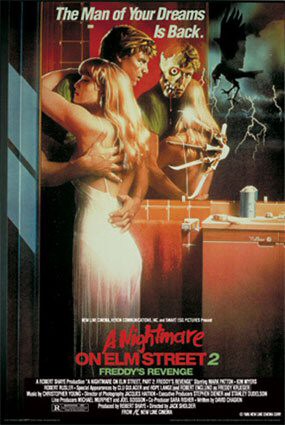
Sean Mc Tiernan is 21, his favorite rapper is E40 and he wants to assure you he does sometimes go outside. He has a blog and a twitter. So does everyone though. He also has a podcast on which he has a nervous breakdown once an episode, minimum.You should totally email him with your questions / insults/ offers of tax-free monetary gifts.
Poking Back, Part 1: How Much Longer Will Facebook Rule?

Part one of a short series on a new film about Facebook-perhaps you’ve heard of it?
The Social Network is full of fibs, as everyone knows. The film is based on Ben Mezrich’s The Accidental Billionaires, which tells a colorfully embellished version of the story from the point of view of Facebook co-founder Eduardo Saverin, which tale, as it was written, was then adapted into the screenplay by Aaron Sorkin. The resulting account of the founding of Facebook amounts to a Hollywoodized game of Telephone. But the movie’s lies aren’t limited to those that blame Mark Zuckerberg for his rapacious and unscrupulous ambition (indeed, much of that stuff is true.) A lot of the lies praise the “Punk. Prophet. Billionaire.” for his unfailing and absolute brilliance and originality, his touching and Aspergery inability to express his True Feelings, and for being lonely and single, these fibs being told to generate erotic movie-star sympathy for the movie’s star, Jesse Eisenberg. (And they do. He is just wonderful. However does he make his eyes go so completely blank like that?)
Lawrence Lessig says that real Harvard students aren’t as witty as the ones in this movie, which is sad, because it is so appealing to imagine a magical place full of geniuses (some strapping, some Aspergery, and some Matt Damon ones getting the better of some guy in a bar). The charm of The Social Network is that it lets us believe in so many of these fairy tales, like the beauty and excitement of being rich and accomplished, The Beautiful People, and most of all the Super Genius who always knows the right answer without even trying. The Social Network is not a hatchet job; it makes a hero of Zuckerberg, not a villain; he’s the kind of love-to-hate hero you’re supposed to admire deep down inside, like Michael Corleone or Tony Soprano, a man of such brilliance, drive and rapacity that he just can’t help himself.
A lot of the facts here were brought to light when Zuckerberg “opened up” to The New Yorker recently.
IMs written by Zuckerberg while he was still at Harvard suggest that he knew exactly what he was doing in delaying work on what would have been a competing site he’d been asked to develop by the (amazingly, real) Winklevoss twins and their partner, Divya Narendra. These IMs reveal a far meaner Zuckerberg than the movie one; he boasts of “fucking” the Winklevoss twins “in the ear.”
Eduardo Saverin put up the seed money for Facebook; nowhere is this in dispute. Anyone who has ever tried to raise seed money can tell you that it is very difficult to get, and that those who take such risks are in the habit of demanding, and receiving, a lot of equity, because the extreme likelihood is that they are going to lose their dough, Harvard or no Harvard. No amount of suddenly giving tons of money to schools or showing people how humble you are is going to alter the fact that Saverin was deliberately ripped off. Zuckerberg wrote some pretty terrible IMs about that, too.
But once a young entrepreneur takes money from venture capitalists, they kind of own that person, for two reasons. One is that the VCs are there, allegedly, to give you, the young entrepreneur, expert insight into the ways of business; the other is the likelihood that you are going to need more money down the road. This is a downer manifestly at odds with the idea of a swaggering, arrogant young genius who always gets his way, and so that doesn’t appear in the movie either. For example, the real Sean Parker was busted in North Carolina in 2005, but formal charges were never filed against him, according to Fortune writer David Kirkpatrick’s recent The Facebook Effect. Nevertheless, Parker was forced out by the VCs, over the objections of Zuckerberg.
Likewise, if anyone ripped Eduardo Saverin off when Facebook received its first infusions of cash, it is next to impossible to believe that the dilution of his shares was the work of anyone but the venture capitalists who staked the company in its infancy, even if Zuckerberg did want him out. The first valuation of Facebook was scarcely over five million (Business Insider claims that Peter Thiel bought nine percent in the company with an initial half-million investment.) That is a very small valuation in the dot-com world, small even for 2004. Everyone knew they’d be going back to the well, and that is why they all wanted to vacuum up all the equity they could.
The movie also seems to suggest that Facebook was an original idea, sprung like Athena from the turbo-brains of Zuckerberg. We see him mulling over his competitors MySpace and Friendster; Friendster, a slightly more dating-oriented site, started in 2002, but MySpace wasn’t even formally launched from its long beta until January 2004, only a month before Facebook went live. Weirdly, there is no mention of Facebook’s real competition at that time, the then-unassailable LiveJournal, founded in 1999. At the time of Facebook’s launch, LiveJournal had over two million users, and was already the venue of choice for teen girls to share their crushes; it was (and still is) bloggier, but it already offered most of the features that would later distinguish Facebook-”friending”, mood text/icon (analogous to Facebook’s “status”), photographs, communities, text messaging, “mini-biographies,” the works. Even the blue and white logo of Facebook recalls the LiveJournal logo at that time.
LiveJournal (now gone off to Russia!) always suffered from bizarre tech issues-early growth was hampered by “invite codes” that weren’t discontinued until late 2003, they had frequent problems with upgrades to the software, and there was confusion about the tiered service; part of it was free, but only a paid account at $25/year would give you access to certain features like text messaging. But the Gospel of St. Zuckerberg requires that he be a visionary, bursting with “creativity,” so: no actual mention of LiveJournal, despite his obvious rapid-fire use of it in the movie.
Facebook is a private company that plays its cards pretty close to its vest, and until they release financial statements any and all valuations published in the press are just pie in the sky, casual estimates reached via rumors of private trading. Reports suggest that Facebook’s 2010 revenues are near $1 billion, and growing at a rapid rate; this comes from brand advertising, performance advertising and virtual goods. There’s no doubt that the site is growing, but even so, recent valuations over $25 billion look a bit rich, even if the gossip is to be believed. The real question is whether advertising (and “brand involvement”) on Facebook is effective enough that advertisers will continue to spend money there.
In any case, let’s not forget that Rupert Murdoch blew $580 million on MySpace five short years ago, in a move initially praised for its prescience, right before Facebook ate their lunch. It’s so hard to imagine that a brand as powerful as Facebook is now could ever diminish, but in the last twenty years many, many seemingly invincible online powerhouses have come and gone. AOL (yes), Prodigy, Compuserve, LiveJournal, MySpace, Netscape, GeoCities, and I’m not even getting into the disasters in the retail and auction sectors-many, many bloodbaths there-and definitely not getting into the tons of businesses that were funded up the wazoo but fizzled at the gate, like boo.com and the sad-but-hilarious fiasco of DEN.
Anyway. The users of social networking companies are very, very fickle and largely underage; it still seems very unclear whether or not they can be advertised to successfully in that context. You would think hey, there is a network effect, people love this thing, there is no reason for them ever to leave. But then the reason shows up in the form of a better social-networking mousetrap. It remains to be seen whether Facebook will live up to the lofty ambitions The Social Network seems to have for it.
Maria Bustillos is the author of Dorkismo: The Macho of the Dork and
Send Us Your Stink Bugs, Will You, China?

Some people are very concerned about the next invasive species vying to be the DEATH OF AMERICA!!!, the brown marmorated stink bug, also known as the Asian stink bug. “This is something we’re calling ‘the perfect pest,’” says University of Maryland entomologist Mike Raupp. “Because it feeds on fruit, it feeds on corn, it feeds on soy beans, it feeds on vegetables and it comes into your house.” More, umm, xenophobically, Valeria Studal of New Jersey’s Star-Ledger writes:
“Where did they come from and what are they up to? The stink bugs in question are Chinese imports, first reported around Allentown, Pa., in 1996. They probably arrived in packing material with shipped goods-isn’t everything we buy these days made in China? Since touching down in America, the Asian stink bug has made remarkable progress for an insect that can take half an afternoon to make its way across your living room.
They have infiltrated the mid-Atlantic states and made inroads into the Pacific Northwest, where a separate colony is spreading out. They are rapidly overtaking populations of native stink bugs, which mainly plague cotton farmers in the Southeast. Marmorated stink bugs are well on their way to becoming an agricultural pest and a nuisance to homeowners, who frankly don’t wish to share their homes with the lower orders.”
Stink bugs eat vegetables, and spread yeast and pathogens to crops with their “dirty-needle” proboscises, but they don’t bite people like bedbugs. So it’s not the end of the world if they get inside your home for the winter. And before we get all up in arms about the putrid odor they release when threatened or squished, let’s remember what Western tourists are doing to the Great Wall of China at the boozy raves and campout parties we keep throwing alongside it. Says conservationist William Lindesay, an officer of the Order of the British Empire, “People are relieving themselves all over it.”
Christine O'Donnell Knew About Treasury Bonds Back In 2006
“Republican Senate nominee Christine O’Donnell of Delaware said in a 2006 debate that China was plotting to take over America and claimed to have classified information about the country that she couldn’t divulge.”
Lingerie Pilferer Apprehended
“For more than four months, a man has been stealing underwear from the homes of Ole Miss’ female students, creeping out the entire town with his antics,” reports the Memphis Commercial Appeal. But now, notes WREG’s Natasha Chen, “the man known as ‘the panty thief,’” has been captured. While the story does indeed have some fairly creepy elements to it, it has certainly resulted in some classic local news reportage. I suppose it’s one of those “laugh to keep from crying” type deals.
Farm Subsidies Don't Count As Handouts (Again)
Funny how that works: “The president of a third party group that’s targeting vulnerable Democrats for their support of government spending has herself received thousands of dollars in federal farm subsidies.” Sound familiar? It should.
